We're hiring ! Join us and make a difference in our hospitals
Emergency (Pediatric)
Contact
Our role
The Emergency Department is dedicated to treating children up to 16 years of age who consult for a vital medical emergency. This means an illness or accident that cannot wait until it is possible to make an appointment to be seen by a GP or specialist.
- Please note: Visits to emergency are prohibited. Maximum two accompanists are allowed (2 parents or 1 parent + 1 accompanist) and other children are not allowed in the service.
- If you have forgotten to request certificates or if you have misplaced them, please contact Certificats [dot] UrgencesPediatriques [at] hubruxelles [dot] be. You will receive a response within five business days.
- No telephone advice can be provided if your child is not regularly followed up in our establishment. However, if your child is under chronic care at the children's hospital or has had a consultation or emergency room visit within the last 7 days and you have additional questions, please feel free to contact us at 02/477.31.00.
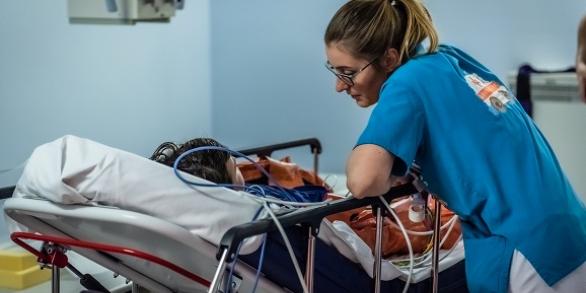
The emergency team has put into place a system of rapid evaluation guaranteeing safe care for all children. Safe and quality care for your child is at the centre of our concerns
Our specialities
The pathologies treated at the Emergency Department are very diverse.
The team is aware that the degree of urgency felt by the parents and/or loved ones of children who are treated at the Emergency Department is certainly the cause of considerable anxiety. They can rest assured that the system of fast evaluation is effective and that each child is treated with the required rapidity.
Children are seen in a precise order, in accordance with the degree of urgency. It is very probable that a number of children who arrive later will be seen as a matter of priority, their condition necessitating this rapidity. We give our assurance that waiting times are reduced to an absolute minimum.
To ensure an optimal intervention for children it is essential to remember that the Emergency Department is not the place to see a specialist doctor. The service is designed solely to respond to vital emergencies.
All the necessary examinations are carried out and staff cooperate with all the hospital's specialist doctors to deliver a rapid diagnosis.
Our team
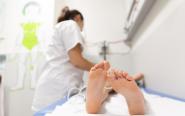
Our medical specialists
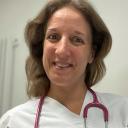
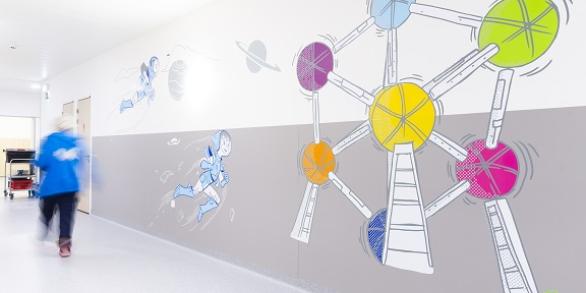
Teaching
Every day, medical students are assigned a doctor with whom they will work closely throughout the day to ensure they feel they have sufficient support and benefit from the doctor's expertise. The student is assigned to a different doctor every day to ensure exposure to the widest possible expertise.
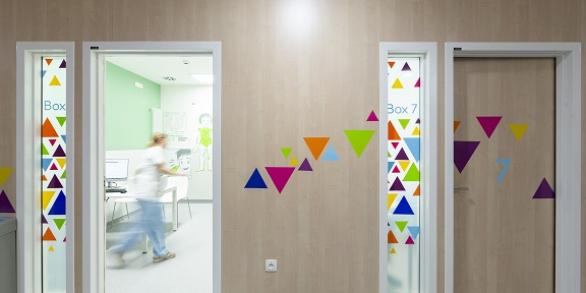
Research
As the Emergency Department is a university hospital we participate in many research programmes. We always ask you, the patient, for your explicit consent before including you in a study. We are currently engaged in a study on the validity of a peak flow meter for children during an asthma episode.
Publications
Clinical Description and Outcomes of Australian Children With Invasive Group A Streptococcal Disease
- Authors : Thielemans, Elise; Oliver, Jane; McMinn, Alissa; Baker, Ciara; Britton, Philip N.; Clark, Julia; Marshall, Helen; Blyth, Christopher C.; Francis, Joshua; Buttery, Jim; Smeesters, Pierre R.; Crawford, Nigel; Steer, Andrew C.
- Journal : The Pediatric Infectious Disease Journal 39(5):p 379-384, May 2020
Canagliflozin protects against sepsis capillary leak syndrome by activating endothelial α1AMPK.
- Authors : Angé, M., J. De Poortere, A. Ginion, S. Battault, M. Dechamps, G.G. Muccioli, M. Roumain, J. Morelle, S. Druart, T. Mathivet, L. Bertrand, D. Castanares-Zapatero, S. Horman, and C. Beauloye. 2021
- Journal : Scientific Reports 11: 13700
Acute sore throat in children at the emergency department best medical practice?
- Authors : Roggen, Inge; van Berlaer, Gerlant; Gordts, Frans; Pierard, Denis; Hubloue, Ives,
- Journal : European Journal of Emergency Medicine 22(5):p 343-347, October 2015.
Clinical impact of the rapid molecular detection of RSV and influenza A and B viruses in the emergency department.
- Authors : Nicolas Yin, Marc Van Nuffelen, Magali Bartiaux, Thierry Préseau, Inge Roggen, Sabrina Delaunoy, Bhavna Mahadeb, Hafid Dahma, Laurent Busson, Olivier Vandenberg, Marie Hallin
- Journal : PLoS Medicine, 02 Sep 2022